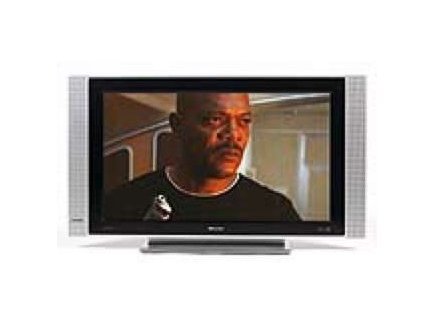TechRadar Verdict
Good for undemanding second TV use, but black level issues make it inadequate as a main TV
Pros
- +
Picture-in-picture options
Integral Freeview tuner
Cons
- -
Black levels
No analogue PC input
Slightly feeble sound
Why you can trust TechRadar
You can seldom say about Philips TVs that they're 'no-frills' affairs, but not the 26PF5521D. This is comfortably the company's cheapest 26in digital LCD TV yet, and as such it's devoid of such goodies as Pixel Plus image processing, Ambilight and ClearLCD.
Yet it's not a totally feature-free zone. For instance, the set does provide a digital tuner, complete with a decently presented 7-day programme guide and memory slots for setting timer events. It's also HD Ready with a native resolution of 1366 x 768 pixels; has a few picture-in- picture options; offers noise reduction and contrast boosting tweaks; and surprisingly, boasts not one, but two HDMI inputs.
Other connections of interest include an optical digital audio output for piping Dolby Digital 5.1 broadcasts to a suitable AV receiver, component video inputs and a CI slot for adding subscription digital services. The only niggle is the lack of dedicated PC input, meaning you have to use one of those precious HDMIs to hook up your computer.
Surprisingly, given its entry-level status, the 26PF5521D is quite attractively designed, retaining the glossy, black screen frame finish of sets further up Philips' current range, and creating a tasteful contrast with silver speakers set to either side.
Picture quality is at times excellent, a real relief considering how underwhelming the pictures from some previous Philips' entry-level LCD TVs have been.
The highlight, as you'd expect, is high definition, which the set renders with all the sharpness and clarity you could hope to see on a 26in LCD TV. What's more, there's far less softening interference where motion is concerned than we've often noted with budget Philips LCDs. Thankfully, this even remains true when stepping down to standard-def sources, which also look enjoyably sharp.
Colours are outstanding, combining often extreme vibrancy with a deft touch when it comes to tricky stuff such as skin tones and dark colour blends. The vibrancy in particular is a triumph over many previous Philips' low-end LCDs.
Sign up for breaking news, reviews, opinion, top tech deals, and more.
The set's combined strengths mean that bright, colourful footage - that's to say, the majority of daytime TV - is a really enjoyable watch. Feed it a moody drama or dark film, however, and some iffy black levels let the side down.
The set only claims a paltry contrast ratio of 600:1, and this is partly borne out by the way supposedly black areas of the picture flatten out into greyness, hiding background detail and denying dark scenes any depth.
This disappointing turn of events is joined by an uninspiring audio performance, which finds a soundstage that's clear and crisp, but lacking in bass or frequency range.
If you're looking for a second room TV, likely to be fed predominantly a diet of daytime TV shows, the 26PF5521D is just about worth considering. But if you want something for heavy gaming or film use, those black level issues may prove tough to stomach.
Tech.co.uk was the former name of TechRadar.com. Its staff were at the forefront of the digital publishing revolution, and spearheaded the move to bring consumer technology journalism to its natural home – online. Many of the current TechRadar staff started life a Tech.co.uk staff writer, covering everything from the emerging smartphone market to the evolving market of personal computers. Think of it as the building blocks of the TechRadar you love today.
